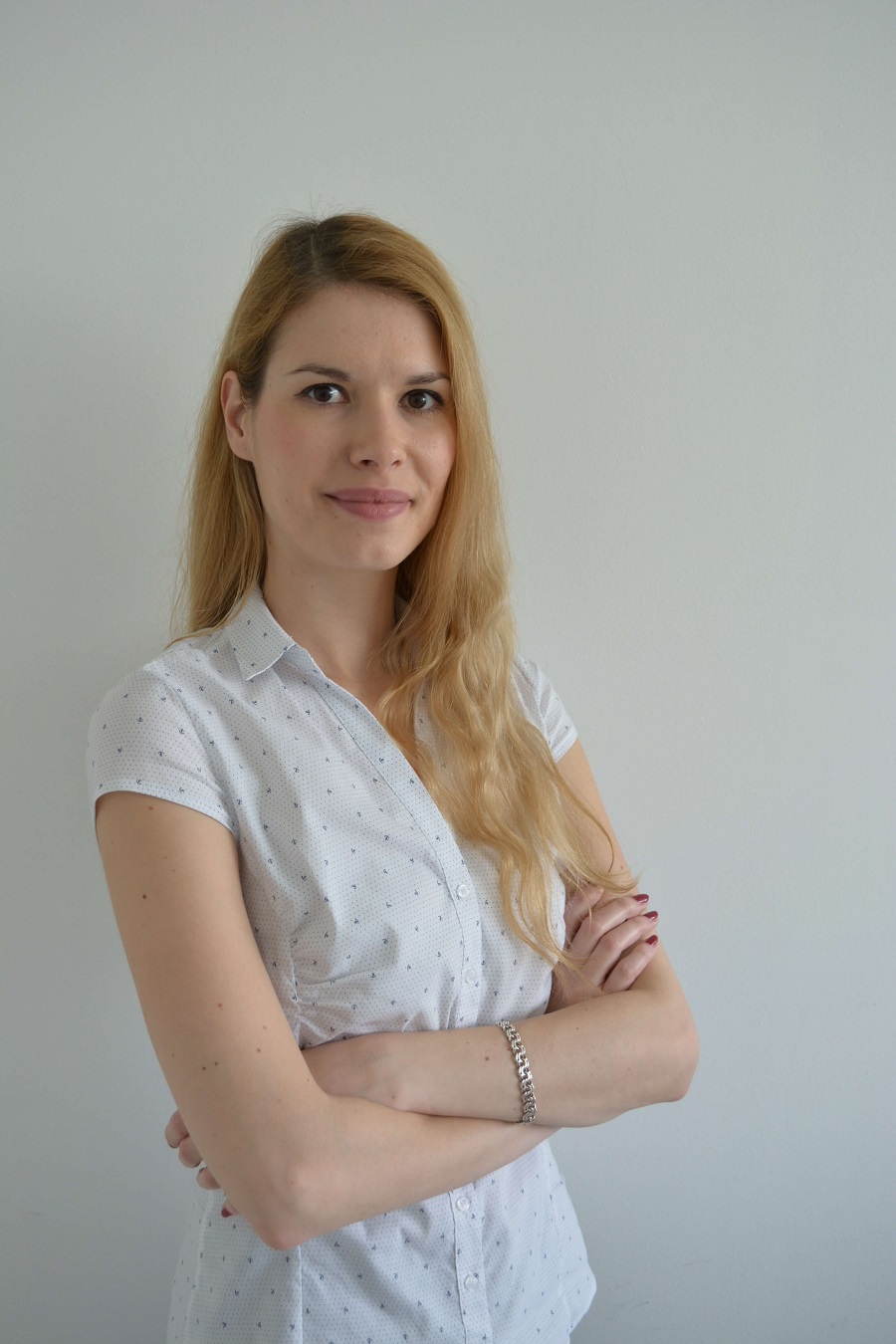Grant Agreements Signed to Promote Health
ZAGREB, July 23, 2019 - The Ministry of Health and the Croatian Employment Service in Zagreb on Tuesday presented health institutions and organisations with 7.7 million kuna (1 million euro) worth of grant agreements aimed at increasing public awareness of the importance of health promotion and disease prevention.
The agreements were presented as part of the project "Health Promotion and Disease Prevention - Phase 1" from the European Social Fund.
The total amount of the grants is 27 million kuna (3.6 million euro), and today the first 12 successful applicants were granted 13 agreements worth 7.7 million kuna. EU funding will be used to promote healthy habits and good health, increase public awareness of the importance of preventing chronic contagious, non-contagious, rare and malignant diseases, and provide additional training for medical staff.
These projects will help health organisations throughout the country "to raise public awareness of how important it is for each of us to take measures to prevent numerous diseases, primarily cardiovascular ones," Health Minister Milan Kujundžić said.
He said that smoking and alcohol were "the two greatest evils" affecting people's health and family lives.
"I hope that through education people will become aware how harmful smoking and alcohol are and that in the years ahead far fewer Croats will suffer from diseases they could influence through prevention," Kujundžić said.
More health news can be found in the Lifestyle section.
Tender Advertised for Construction of New Bjelovar General Hospital
ZAGREB, July 22, 2019 - An international public tender has been advertised for the construction of a new General Hospital building in Bjelovar, about 80 kilometres northeast of Zagreb, the largest construction project in the healthcare sector in Bjelovar-Bilogora County in the last 40 years.
The tender, worth 165 million kuna, includes the construction of a day hospital and surgery ward, an integrated emergency services reception centre, heat pumps and a waste separation system. 70 million kuna has been secured from two tenders for EU funding, 5 million kuna comes from the Fund for co-financing the implementation of European projects, and the remaining 90 million kuna has been secured by a loan taken by the Bjelovar General Hospital.
The construction of the new Bjelovar General Hospital building is the third such investment in the Croatian health sector after the construction of the general hospitals in Zabok and Pula. It should increase the standard of patient treatment and improve the quality of work conditions for hospital doctors and staff.
More medical news can be found in the Lifestyle section.
Government Gives Go-Ahead for Personalised Medicine in Oncology
ZAGREB, July 18, 2019 - The government on Thursday gave the go-ahead to sign a memorandum of understanding with the Roche pharmaceutical company for the preparation and implementation of the project "Personalised medicine in oncology" aimed at improving cancer treatment outcomes in Croatia.
The project aims to improve care for cancer patients by using genetic profiling to ensure targeted therapy, improve the quality of life and treatment outcomes, and reduce the mortality rate among patients suffering from malignant diseases.
The project provides for establishing a national centre and a national team for targeted treatment based on genetic profiling.
The Roche company has sent a letter to the Health Ministry expressing its intent to participate in the preparation and implementation of the project. By accepting the letter of intent, the government supports the transformation and enhancement of oncological care in Croatia based on a personalised approach and treatment based on the results of genetic profiling and data from clinical practice," Health Minister Milan Kujundžić said.
The Health Ministry will set up a task force, comprising representatives of the co-signatories of the memorandum, to draw up an action plan.
The signing of the memorandum was scheduled for Thursday evening.
More medical news can be found in the Lifestyle section.
Medicine Wholesalers Announce Selective Suspension of Drug Deliveries
ZAGREB, July 12, 2019 - The coordinating body of pharmaceutical wholesalers at the Croatian Employers' Association (HUP) announced on Friday they were beginning a selective suspension of deliveries of drugs and medical supplies to hospitals after their debts had reached 2.6 billion kuna.
Representatives of pharmaceutical wholesalers warned at a press conference that the hospitals' debt was increasing by 150 million kuna every month and, because the government was ignoring their warnings, they would write to the European Commission.
They stressed that none of the hospitals was paying its obligations within the statutory deadline of 60 days, adding that they had borrowed an additional 1 billion kuna to ensure regular drug supplies to the hospitals.
"We are beginning a selective suspension of drug supplies to individual hospitals, and pharmaceutical wholesalers will do this at their discretion," the head of the coordinating body, Ivan Klobučar, said.
He said that some of the pharmaceutical wholesalers would take legal action against the hospitals in Dubrovnik, Sisak and Vinkovci, which are over 1,000 days late in paying their debts.
"The promise by Health Minister Milan Kujundžić about the payment of 200 million kuna for the hospitals' debts has been fulfilled, but the pharmaceutical wholesalers have received only 130 million kuna, which is eight percent of the total debt of 2.6 billion kuna," Klobučar said, adding that he did know where the remaining 70 million ended up.
The debt is expected to reach 3.6 billion kuna by the end of the year, with an average payment period of 590 days. Klobučar said that five hospitals were over 800 days late in paying their debts, and three were over 1,000 days late.
As a short-term solution, pharmaceutical wholesalers are proposing that 50 percent of the debt, or 1.3 billion kuna, be settled immediately, while as a medium-term solution they are proposing the preparation of an acceptable debt payment schedule to reduce the payment time to the agreed 260 days by the end of the year. They say that the problem of the hospitals' insolvency and cost-ineffectiveness should not affect drug deliveries because they accounted for barely 20 percent of total costs in the health budget.
The chairman of the governing council of the Croatian Health Insurance Fund (HZZO), Drago Prgomet, on Friday commented on the announcement by pharmaceutical wholesalers that they would begin a selective suspension of deliveries of drugs and medical supplies to hospitals over their debts.
"Croatia has never been left without drugs, hospitals have never been left without drugs and they will not be left without them now," Prgomet said in response to questions from the press.
Asked how the hospitals intended to resolve this problem, he said that they would do it as they had done before - by paying their debts. "We are aware of the debts that we have. The debts will be paid off, but there will be no suspension of drug deliveries. The citizens need not worry. The Croatian citizens have never been left without drugs and they will not be left without drugs now or in the future."
Prgomet said that pharmaceutical wholesalers were making very good profits in Croatia and would not take legal action. Asked if this meant that they were earning enough regardless of the debts owed to them, he said that none of them had failed so far.
More medical news can be found in the Lifestyle section.
Parents of Island Children with Developmental Problems Demand Free Ferry Transport
ZAGREB, July 6, 2019 - Around 300 protesters rallied in Supetar on the southern island of Brač on Saturday demanding free ferry transport for children with developmental problems who live on islands and receive their therapy on the mainland.
The protesters blocked the passage of passengers and vehicles disembarking a ferry that arrived from Split for 120 seconds as a warning that parents from Brač who have children with developmental problems have been fighting for their children's right to free ferry transport for 120 months.
The leader of the local association of parents whose children have developmental problems, Maja Bonačić-Proti, said that they had been given promises many times that the relevant legislation would be amended to secure the right to free ferry transport for their children.
Even if amendments to that effect are put forward in the parliament in October, it will take three to six months to adopt them, she said.
"In the meantime, our costs are growing bigger and bigger. There has been enough of waiting, we want the relevant legal amendment be adopted under fast-track procedure so that we can get not only the right to free ferry transport, but also the possibility to live in dignity," she said.
A member of the association, Mate Mladin, said that there were 83 children with developmental problems on central Dalmatian islands and that around 300 children with developmental problems were estimated to live on all Croatian islands.
He said that a return ferry ticket from Brač to Split cost 200 kuna (approx. 27 euros), including fare car transport, which he said was essential for parents with children with developmental problems.
Since some of the children need to receive therapy several times a week, their ferry costs exceed 3,000 kuna (405.40 euro) a month, he said, adding that the cost of ferry transport was even higher for people who lived on the more remote islands.
A large number of parents whose children have developmental problems barely cover their basic living costs, he said.
More health news can be found in the Lifestyle section.
Marijuana, Cocaine and Amphetamines Most Common Drugs in Croatia
ZAGREB, June 26, 2019 - The Croatian Institute of Public Health (HZJZ) on Wednesday reported that drug addicts are getting older and that they mostly consume marijuana, cocaine and amphetamines and that the highest number of people being treated for drugs can be found in Zadar and Istria counties.
"The situation in Europe, which has become the leading market for heroin and cocaine, has reflected on Croatia too. We have an increased consumption of cocaine, amphetamines - ecstasy and marijuana which is all the more present as about 70% of confiscated drugs are in fact marijuana," HZJZ assistant director Željko Petković told a press conference on the occasion of International Day Against Drug Abuse and Illicit Trafficking.
International Day Against Drug Abuse and Illicit Trafficking has been marked since 1987 when the UN decided to warn of the problem of drug abuse and the need for active involvement of all stakeholders in the prevention of drug abuse at the global and national levels.
"The problem of drugs goes beyond the health sector and without the cooperation of the judiciary, interior ministry and social welfare system the public health system cannot do a lot," HZJZ's Ivana Pavić Simetin said.
Data from the national register of people being treated for abuse of psycho-active drugs which have been present in Croatia since 1978, indicate that in 2018 there were 6,831 people under treatment which is less when compared to 2010 when that number was 7,550.
Pavić Simetin underscored that people undergoing treatment are growing older and so in 2018 their average age was 38.1 whereas in 2010 the average age was 32.2, however the youngest user registered was 14 and the oldest was aged 73.
There are fewer new drug addicts while the share of male drug addicts is four times higher than for women. Of those being treated, the majority of them have secondary school qualifications, they are unemployed and live with their parents while analyses indicate that the highest number of those being treated are in Zadar and Istria counties followed by Šibenik-Knin and then the City of Zagreb.
More health news can be found in the Lifestyle section.
Union Proposes Supplementary Health Insurance Census in Line with Poverty Threshold
ZAGREB, June 14, 2019 - The Croatian Pensioners Union on Friday asked Finance Minister Zdravko Marić and Health Minister Milan Kujundžić to raise the supplementary health insurance census to 2,321 kuna, which is the Croatian poverty threshold for a single pensioner.
The union proposes that the income census be determined every year in line with the poverty threshold which the national statistical office determines every year.
The union says in a press release that pensions will soon be indexed for the second time this year and that the 3.13% increase of the lowest pensions could result in about 10,000 pensioners losing the right to free health insurance.
With the last indexation, more than 3,000 pensioners received 40-50 kuna higher pensions, losing free supplementary health insurance, as a result of which they had to start paying 70 kuna a month, the union says, adding that now 250,000 of those with the lowest pensions are at risk of losing supplementary health insurance.
The income census has not been changed since 2004, which means that everyone whose income per family member exceeds 1,516 kuna, as well as single pensioners with incomes exceeding 1,939 kuna, will lose that right.
About 173,000 pensioners currently exercise the right to free supplementary health insurance. Since 2012, the number of supplementary health insurance policies paid by the state has dropped from 740,000 to 480,000, the union says.
More news about health issues can be found in the Lifestyle section.
Small Protest Against Mandatory Vaccination Held in Split
ZAGREB, June 9, 2019 - A peaceful anti-vaccination protest was held in Split to mark International Vaccine Injury Awareness Day, with protesters saying that the procedure should not be mandatory but based on informed consent.
The protest was organised by the Croatian Association of Parents and Activists (HURA), and a special guest at the event was Andrew Wakefield, a controversial British doctor who has lost his medical licence and who opposes vaccination, claiming it causes autism.
Speakers at the protest stood up for Wakefield, claiming that he was exposed to a media lynching campaign.
The protesters wore T-shirts and carried banners with messages warning about the consequences of vaccination such as "Report side effects", "Mom and dad decide", "Stop the import of unsuitable vaccines", "These are our children", and "Leukaemia means death".
HURA president Alma Demirović said that vaccination is mandatory in Croatia, which violates some of the fundamental human rights, notably "to right to obtain full information on vaccination." Vacines cannot be mandatory and noncompliance cannot be punished with discrimination, fines and other types of human rights violation, said Demirović.
She stressed that HURA was not advocating an end to get vaccinations but rather that it be done on the basis of a recommendation.
Wakefield said that Croatian citizens had to have control over their and their children's bodies and that they should demand full informed consent with regard to vaccination.
Another speaker at the protest, doctor Lidija Gajski said Wakefield had been exposed to a media lynching campaign.
"The medical community is calling for the boycott of today's protest. Science journalists have stood up against it. Andrew Wakefield's visit was announced by almost all media outlets," said Gajski, describing media reports as a lynching campaign aimed at distorting the truth.
The anti-vaccination gathering in Split was also attended by member of parliament Ivan Pernar, who recently left his Živi Zid party, and who told reporters that he came to support parents in their right to choose whether or not to have their children vaccinated.
"Vaccination should be voluntary and it will be voluntary when the parliamentary majority is made up of politicians who advocate voluntary vaccination," Pernar said, calling on voters to support such politicians.
The Croatian Medical Chamber, the Croatian Medical Association and members of the Croatian Journalists Association who are science journalists recently expressed concern about Wakefield's visit to Split, noting that vaccination was one of the most important medical achievements of modern times and one of the safest medical interventions.
More news about the issue can be found in the Lifestyle section.
Soft Skills for Croatian Healthcare: The Bagatin Academy Revolution
June 8, 2019 - Customer service and the concept of soft skills are sadly not things for which Croatia is well-known for, but there are attempts to change this as Sara Bukic from the innovative Bagatin Academy explains.
Arguably the most dynamic clinic in the Croatian medical tourism sector is Bagatin Clinic, which has two facilities in Zagreb and recently also opened in Split. Named as the best clinic in Europe for dermatology as just one example of its international credentials, the Bagatin philosophy is a lot more all-inclusive than one would perhaps expect in business in Croatia. Education, education, education. A look at what is happening behing the scenes at a rather successful project of education for the Croatian healthcare system, best explained in an interview with Sara Bukic from Bagatin Academy.
1. Bagatin Clinic is known as one of the most progressive and successful clinics in the Adria region, but it may come as a surprise to many to learn about the sister project, the Bagatin Academy. Tell us about the Academy project and how it came about?
Bagatin Academy is an educational project very dear to my heart. In 2015, the board of Bagatin Clinic recognized the need for soft skills/people skills development in the medical sector so we launched an educational cycle for our employees, starting in September and ending next year in April, covering topics of communication, empathy, presentation skills and hospitality.
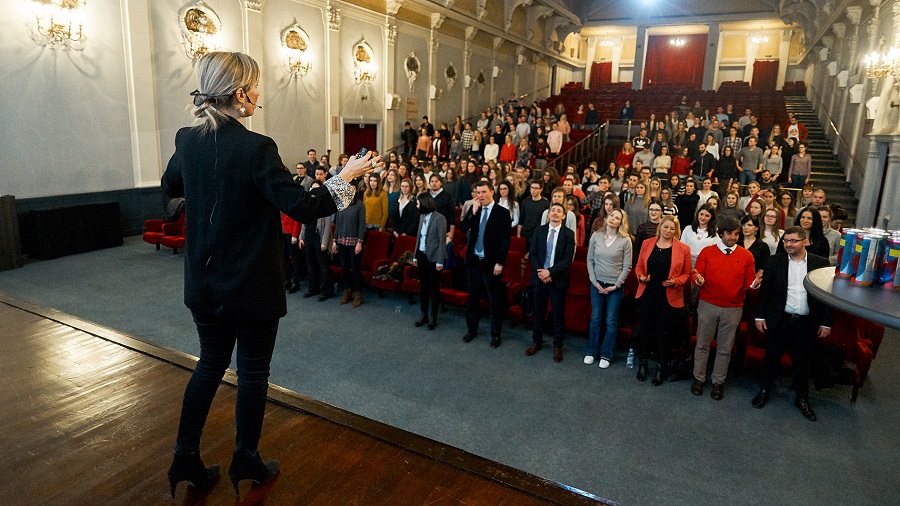
We often emphasize that we have the best medical staff who are frequently attending professional seminars and congresses in the field of their own expertise, but no medical educational institution has, for example, communication and leadership classes. In our opinion this set of skills is of great importance. Imagine this: you have two doctors who are both equally highly professional but one of them is kind to his patients, understanding, walking them through entire process etc. and the other one is snappish and makes patients feel like a number, not like a person. Which one would you go to?
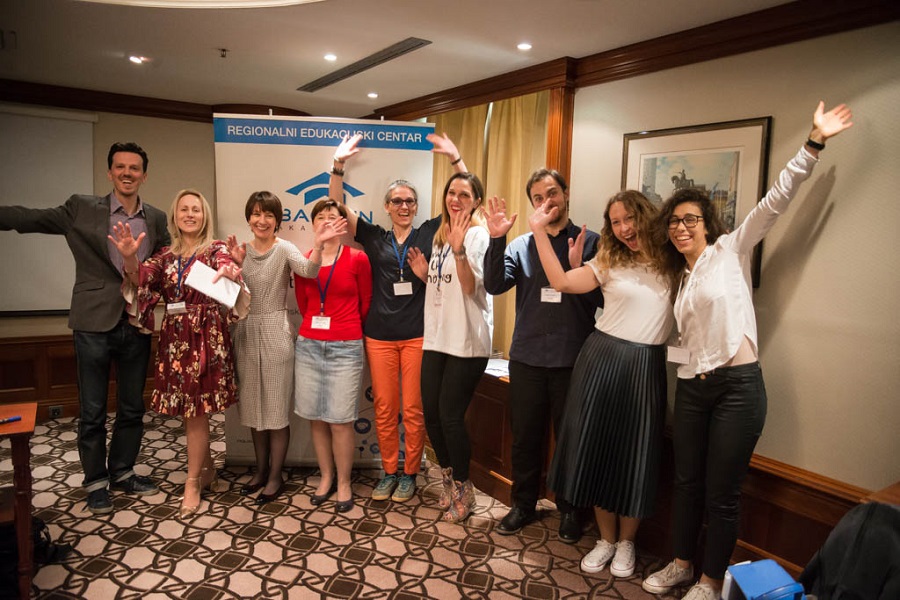
2. The educational concepts covered in the Academy may be standard practice. Place the Academy in the Croatian context - why was there such a need for it?
There are examples of poor communication practices in both public and private health care sphere, but the private health sector will persist only if there is a communication level appropriate for the client. It is important that we provide the client with the quality service they want and need.
As I mentioned earlier, schools and universities do not have classes in which our students would develop soft skills from the early days. That goes for medical faculties/universities as well. So, one of our long-term goals is that the system recognizes these skills as inevitable for the future of medicine and brings in similar courses as compulsory classes. I don`t think this is a challenge only in Croatia, but here is where we work and live and that is why we start with the change here. The programs and concepts covered in Bagatin Academy should really be a standard practice everywhere and we hope this will come true. We want to equalize the level of service quality in both the private and the public health sector.
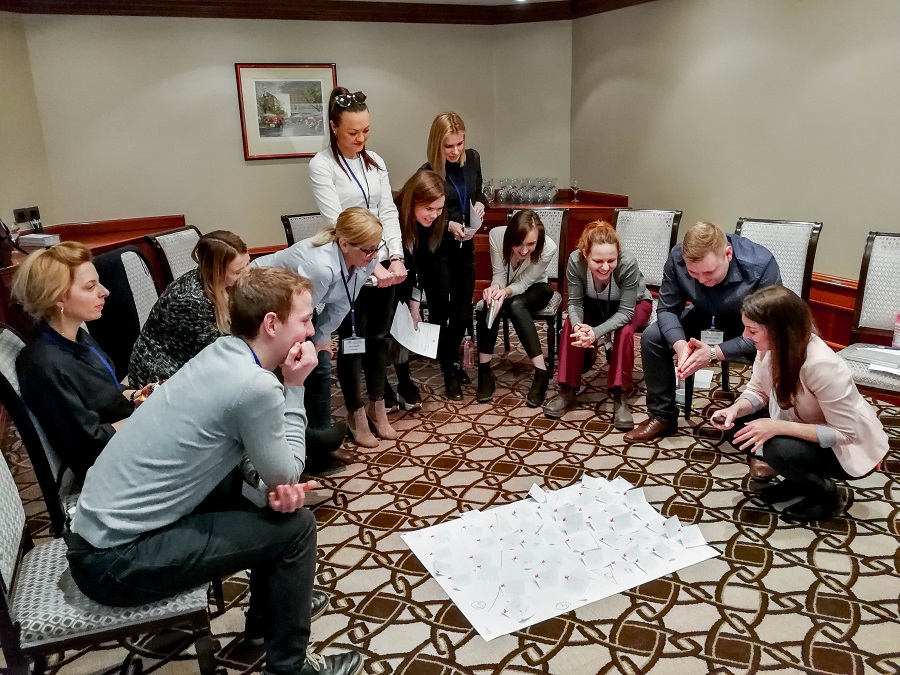
3. The Academy project was obviously not something together overnight, but involves many partners and planning. Tell us a little about that.
I have the great pleasure of working with one of the greatest visionaries in the region. The idea was sparkling in the minds of our board members for a long time and they knew if they wanted to make a difference, they needed to abide by a very famous quote “if you want to change the world, start by changing yourself”. We are very happy that Bagatin Academy`s initiatives were recognized by the Croatian Medical Chamber and the Croatian Chamber of Nurses who have been supporting us since day one. They gave added value to Academy’s attendees by giving awarding points that doctors and nurses collect for their licenses. The support from the Chambers for us is a sign the system also recognizes the importance and the value of this kind of workshops.
Medical University of Zagreb, Medical University of Split and University of Dental Medicine also supported us by trusting us with their students who are the future of Croatian health care. Of course, nothing would be possible without our great educators and trainers who are sharing their knowledge in the field of people skills. We are collaborating with highly experienced professionals from all over Croatia who are using practical methods to teach people skills and we’re very grateful they joined us in this initiative within our health system.
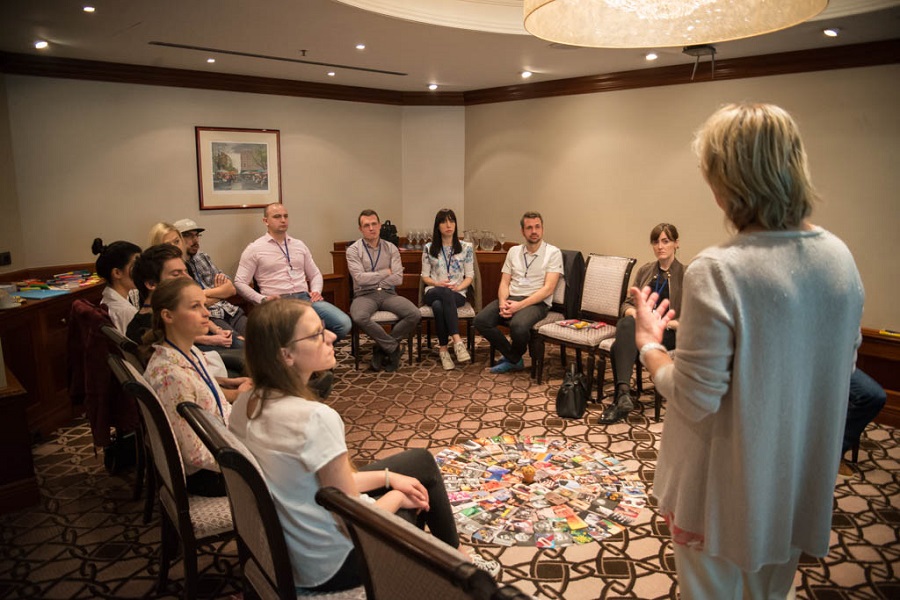
4. Who are the main clients, and what are they looking to get out of their relationship with the Academy?
Our main clients are doctors, medical nurses and technicians, auxiliary medical staff, people working in the medical sector, reception and call center staff; all the people you can find working in any kind of health institution, and of course, the future of Croatian health system, medical students.All attendees of our workshops are looking to raise the Croatian health care system to a higher level that provides more than just another series of treatments to users. There is a word “care” in health care but we often can`t find it. This is why we want the health care system to be: high expertise, kindness, giving and truly caring.
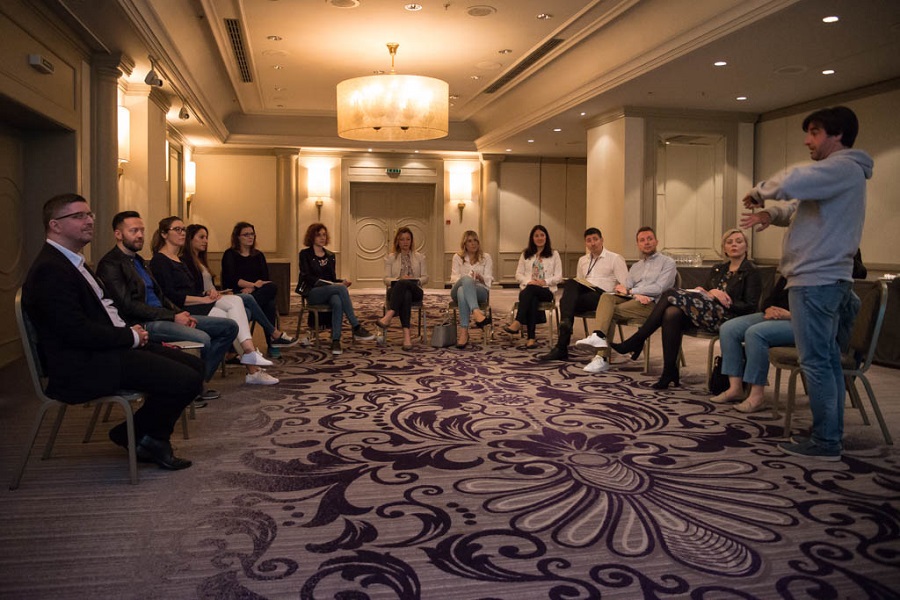
5. How would you assess the success of the project so far? What are the main achievements?
Allegedly, Vincent van Gogh once said: “Great things are not done by impulse but by a series of small things brought together.” That is exactly how I would assess the success so far. You have to understand that the idea of improving Croatian health care into a fantastic and successful story, which would result in placing Croatia at the center of medical tourism map, is a big venture. Let's put it this way, if a man who is accustomed to a sedentary lifestyle suddenly decides that he wants to run the standard marathon of about 42 kilometers, he will certainly not get up from his armchair and immediately run those 42 kilometers. Every day in which he prepares for the great race, every day in which he does not give up and he still trains with all the effort, that is exactly his great achievement and a step closer to the goal.
We had our fair share of achievements through a number of held workshops through which we educated over 600 doctors and nurses, together with our partners I mentioned earlier.We are especially proud of the event for the students of medicine and dentistry we held in the cult Cinema Europe in the heart of Zagreb. “How to be the best doctor?” gathered over 300 students with whom we went through the topics of personal leadership and public speaking. Our CEO, Ognjen Bagatin, also shared his path of making the Bagatin Clinic, his attempts and mistakes on his way up. We know the students are our future, the best chance for change and improvement.
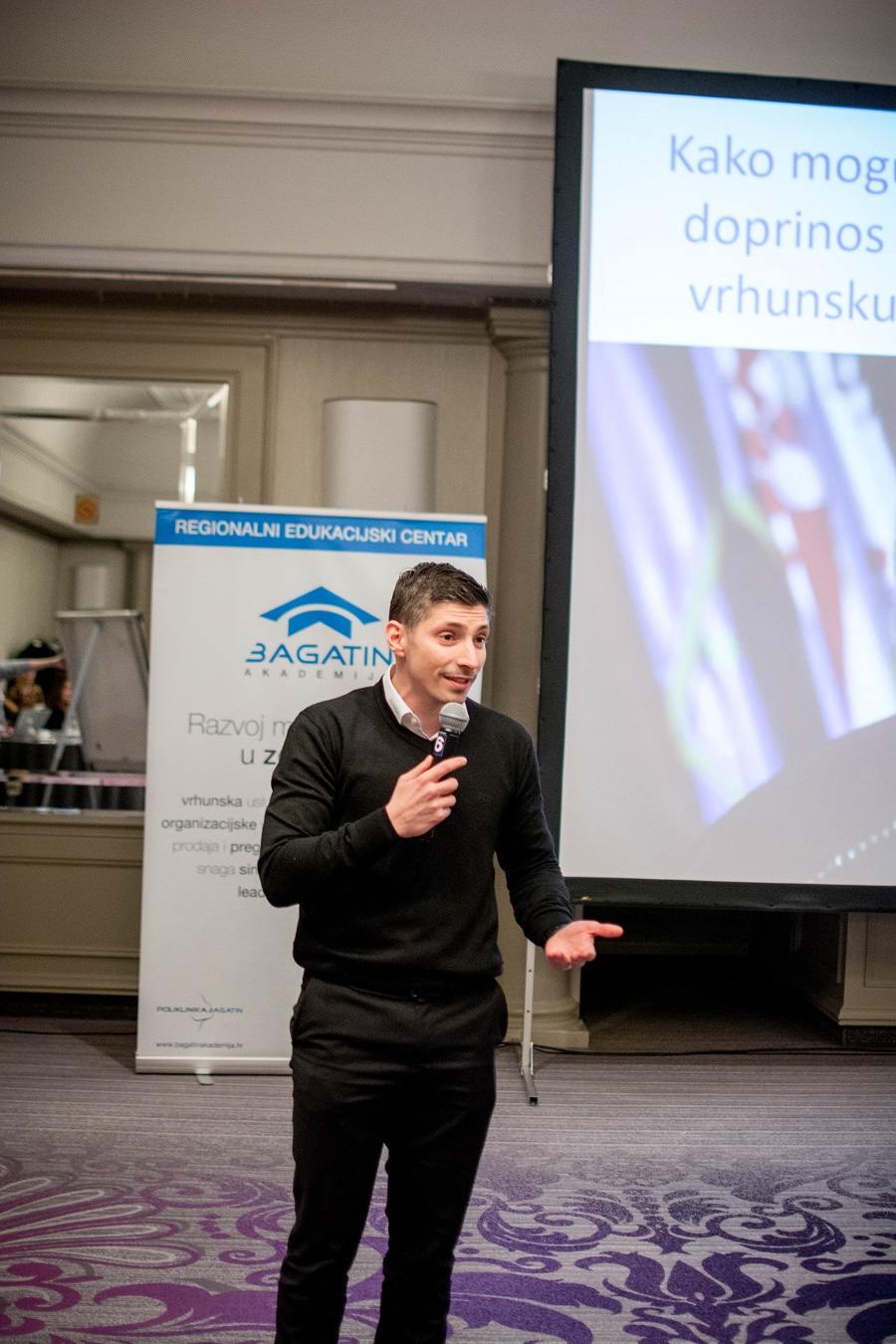
6. How has the Academy been received in the business community here?
At first it was like we are doing something very strange. A lot of people hadn't even heard of the Croatian expression for soft skills which is “meke vještine”. At one point, an article came out saying Bagatin Academy was doing “neke vještine”, which means “some skills”. They switched the letter “m” with the letter “n” because it had more sense to them. People were confused about what kind of education we are doing; the community always associated us with medicine, so they could not understand and associate us with soft skill training. Over the years it became more clear what we are doing and why are we doing it, so many of our partners and friends but also competitors attended our workshops and some of them also started their own Academies, which makes us proud knowing that we are getting closer to our goal – to educate (directly or indirectly) all medical staff in people skills.
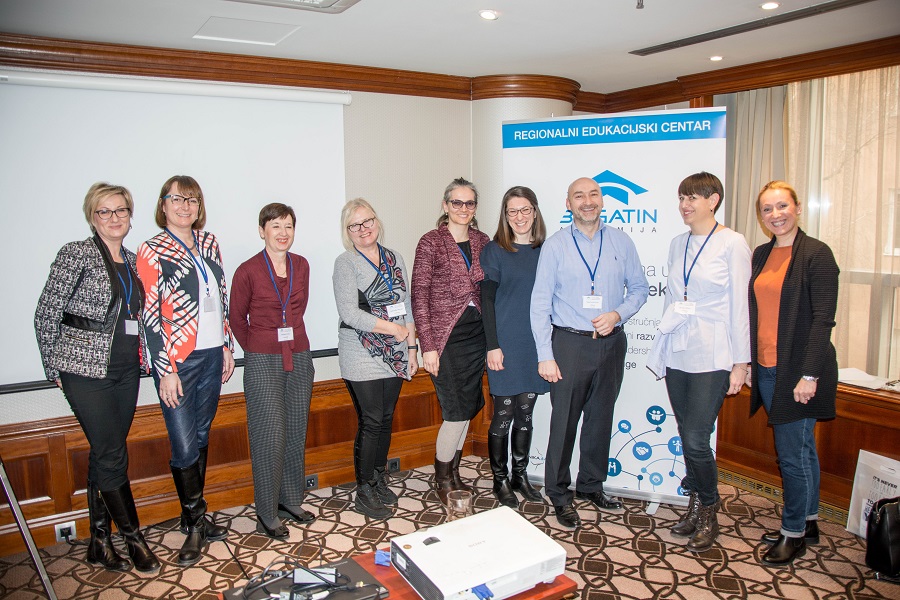
7. Tell us a little about the quality and experience of the mentoring/teaching staff.
In the past four years we have been cooperating with over 50 excellent educators and coaches. Their fields of expertise are really different - from psychologists, economists, experienced businessmen and leaders, experts from the field of organizational culture and organizational design who, in addition to their primary knowledge, are certified by various coaching and educational boards in Croatia and/or the world.
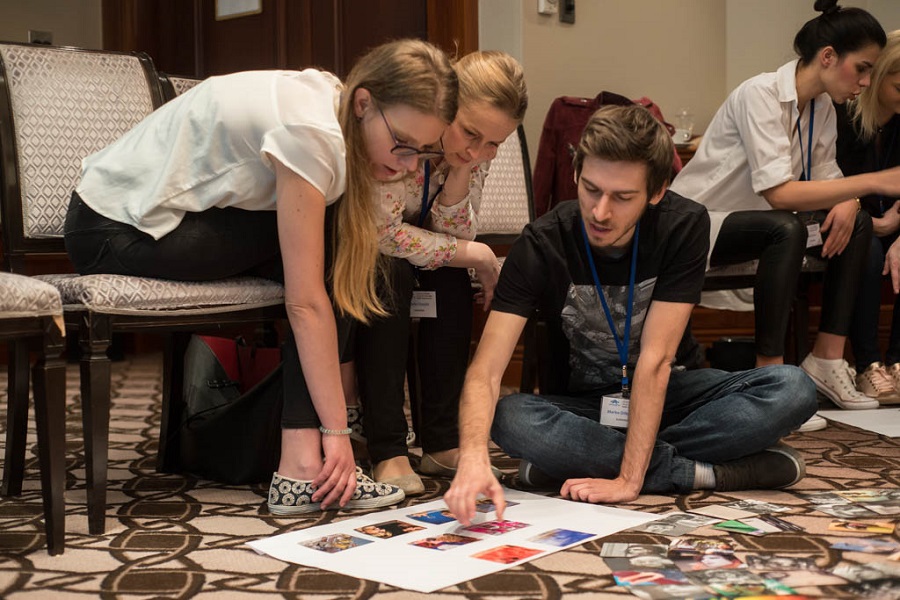
8. Who is the Academy aimed at, and what are the main areas you can help Croatian businesses? How receptive have Croatian businesses been to your programs?
Bagatin Academy is focused on the health sector and on the education of the whole medical staff. It is not easy to change our own habits and our way of work, let alone someone else’s. With time they started to open up to the idea. We are aware that this is an alteration of their mindset. Some think we will never succeed in this idea, while others approach us, with their desire to make an improvement with us. Together we can do a lot and this beautiful country will flourish. We are always open to cooperation and projects that have the potential of making the difference.
Our goal is to make a Patient Experience conference and bring in the big players to Croatia such as Cleveland Clinic, Disney, Ritz Carlton and other major world brands. For quite some time now we've been in negotiations and agreements with wonderful people from the Cleveland Clinic, and some of them we've already hosted here in Bagatin Clinic in Zagreb, in March 2019. Now we would like to share their incredible knowledge and experience internationally. Hosting this conference would mean that experts in telemedicine, AI and innovation would come to Croatia, and everyone else would follow. We want to place Croatia on the world map as a top medical tourism destination.
9. Where is the Bagatin Academy going to be in 5 years?
What are the goals? Can we meet again in 5 years so I can tell You what happened? The goals are very clear: 20.000 doctors, 3.500 dentists, 30.000 nurses have heard at least one soft skills lecture from the Bagatin Academy or another provider. Dental Medicine University and Medical University has introduced a course for communicating with patients or something similar from soft skills domain. We would like to have 3 more competitors who would do the same thing as we do, because together we can do much more.
To learn more about the Bagatin Academy, visit the official website.
To learn more about health tourism in Croatia, follow the dedicated TCN section.
Emergencies from Neretva River Valley to Be Handled by Mostar Hospital
ZAGREB, June 5, 2019 - Patients from the Neretva River valley and the area of Vrgorac - heart attack and stroke patients, multiple trauma patients and seriously ill children - will soon be able to seek medical care at the Mostar University Hospital.
An agreement to that effect was signed in Zagreb on Wednesday by Croatian Health Minister Milan Kujundžić, Bosnia and Herzegovina Federation entity Health Minister Vjekoslav Mandić and Mostar University Hospital head Ante Kvesić.
"Most of the hospitals in Croatia are an hour-drive away from patients' place of residence and due to historical circumstances and the proximity of the border with Bosnia and Herzegovina, people who live in the Neretva River valley do not have the same status as other citizens in cases of serious illness, multiple trauma and heart attack and stroke. This agreement makes their status equal to that of other Croatian citizens," Kujundžić said.
Emergency cases from the Neretva River valley will be treated at the Mostar hospital, which is open 24 hours a day, has good results and offers procedures that guarantee safety and quality, Kujundžić added.
Mostar University Hospital head Mandić said that the hospital had the necessary capacity to take in patients from the Neretva River valley in Croatia, who, he said, had gravitated to that medical institution before 1991.
More medical news can be found in the Lifestyle section.

